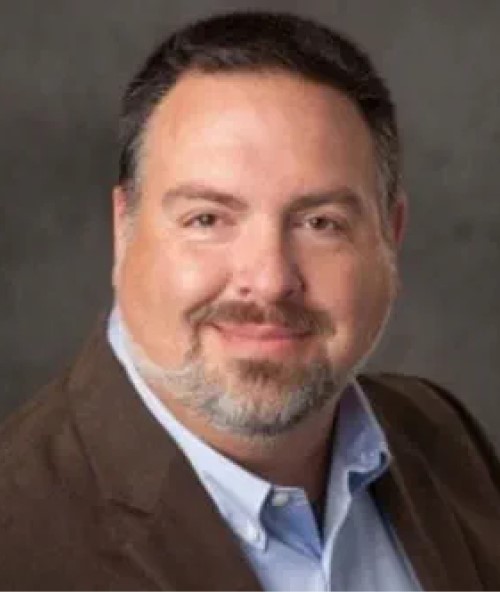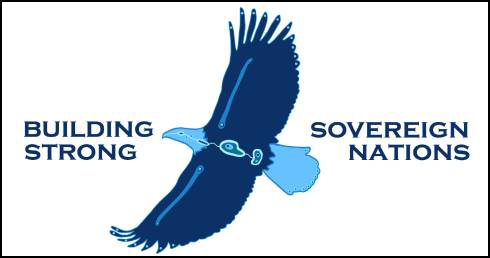
To learn more about Dr. Leonard:
Read the MSU Today article: Kevin Leonard appointed interim director of MSU's Native American Institute
Read the MSU Voices article: Supporting Indigenous communities beyond the land acknowledgment
A FEW WORDS
FROM INTERIM DIRECTOR LEONARD
Boozhoo! Ziigwan!
As we exit spring and get ready for summer and the numerous powwows around the Great Lakes region, I hope this letter finds everyone in good physical and mental health. The Native American Institute (NAI) staff continues to stay busy as we hold listening/visioning sessions with our partners on and off campus. The Michigan State University community has been through a lot this past semester, and I do not have the words to tell you how good it feels to be out meeting with our Tribal leaders on their Nations’ land. Each has been so gracious in welcoming me and the Grassroots Solutions team into their communities. Chi Miigwech! We have a few more visits to conduct and schedule for the coming weeks (see below for more details), but we are making excellent progress and the information we are collecting is invaluable. Remember, if you would like to provide input/feedback about the future of the NAI and the needs of our Indigenous people and Nations, please do not hesitate to reach out to nai@msu.edu or call (517) 355-0124.
Baamaapii!
Kevin P. Leonard, Ph.D.
Interim Director
Native American Institute
University Outreach and Engagement
NAI UPDATE

What is Happening with the Native American Institute?
Since we published our March newsletter, the NAI staff and Grassroots Solutions team have been busy reaching out to our community partners on and off campus to schedule listening/visioning sessions. When possible, we have met in person with the Tribal Nations within the state, but we have also met with numerous partners via Zoom. These sessions are designed to assess the needs and wants of our state's Tribal Nations, Tribal colleges, and other partners. This information will be used to develop a report that will be given to the provost and president of MSU to draw attention to the needs of our Tribal Nations and partners. The input we receive will also help us develop a strategic plan that will guide the NAI moving forward. The final report will also be shared with those with whom we have met, giving MSU, NAI, and the participants joint ownership.
As of June 1, we have met with the following Nations and partners:
- Match-e-be-nash-she-wish Band of Potawatomi Indians
- Pokagon Band of Potawatomi Indians
- Nottawaseppi Huron Band of the Potawatomi
- Saginaw Chippewa Indian Tribe
- Little Traverse Bay Bands of Odawa Indians
- Little River Band of Ottawa Indians
- Bay Mills Indian Community
- Sault Ste. Marie Tribe of Chippewa Indians
- Grand Traverse Band of Ottawa and Chippewa Indians
- Bay Mills Community College
- Keweenaw Bay Ojibwa Community College
- Saginaw Chippewa Tribal College
- Inter-Tribal Council of Michigan
- United Tribes of Michigan
- Ziibiwing Center of Anishinabe Culture and Lifeways
- Nokomis Cultural Heritage Center
- Confederation of Michigan Tribal Education Departments
- American Indian Health and Family Services
MSU organizations:
- North American Indigenous Student Organization
- American Indian Science and Engineering Society
- Indigenous Graduate Student Collective
- Native American Law Student Association
- EAGLE (Native American faculty and staff association)
- American Indian and Indigenous Studies
- Indigenous Law and Policy Center (College of Law)
Although we are still working to connect with a few other Tribes and partners, we are on track to complete data collection by June 9. The Grassroots Solutions team, consisting of Christina Kuo (principal) and Misty Blue (evaluation project manager), with assistance from two MSU Native undergrads, will compile the data into a report that will be shared with university administration by the end of August. As mentioned above, the findings will be used to provide direction for the NAI moving forward. The firm will also help draft a position description for the director of the NAI to help identify the individual best suited to lead the Institute. The search for the full-time director should commence in late September or early October.
OTHER NEWS

Department of Religious Studies Uses Inaugural 1855 Professorship Award to Hire Native American Faculty

The Native American Institute is pleased to welcome Dr. Blaire Morseau (Pokagon Band of Potawatomi Indians) and Dr. Elan Pochedley (Citizen Potawatomi Nation) to the MSU Native community! Their arrival not only significantly increases the number of Native tenure-track faculty on campus, but also brings two individuals who have the potential to create new collaborations and networks with tribal Nations and communities across the Great Lakes.
Zhitoowing Meshkooziimgak Mxowe Dedbinowe Maamoweziwin – Building Strong Sovereign Nations

Building Strong Sovereign Nations (BSSN) is an MSU Extension training series for appointed and elected Tribal Nations officials; Tribal College faculty, administrators, and students; and Tribal administrators and interested community members throughout Michigan.
This series is managed by MSU Extension and the MSU Center for Community and Economic Development, with funding from the Inter-Tribal Council of Michigan and the U.S. Economic Development Administration.
Learn more or register for one or more free training sessions.
TRUTH Project – Towards Recognition and University-Tribal Healing
Grassroots Solutions team member Misty Blue, who is assisting NAI with listening/visioning sessions, was appointed by the Minnesota Indian Affairs Council (MIAC) to coordinate the TRUTH project. In partnership with the 11 federally recognized Tribes, the all-Native research team has developed the final report, titled Oshkigin Noojimo'iwe, Naġi Waƞ P̣etu Uƞ Ihduwaṡ'ake He Oyate Kiƞ Zaniwic̣aye Kte (the spirit that renews through fire heals the people). The report details how the University of Minnesota undermined Tribal sovereignty and Indigenous self-determination using genocide, land expropriation, and exploitation of Indigenous knowledge systems to transfer and accumulate wealth. Findings also indicate that the university has participated in the development and teaching of revisionist narratives that conceal the systemic harms perpetuated against Indigenous peoples.
Submit your programs and events
The Native American Institute would like to help promote Indigenous programming, events, powwows, and social gatherings in future newsletters and/or on our social media. If you would like your event reviewed for promotion, please submit a brief write-up that includes title of the event, date, time, location, and other pertinent information, as well as related flyers or images, to nai@msu.edu.

